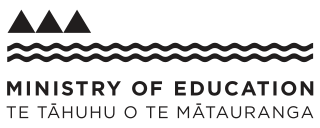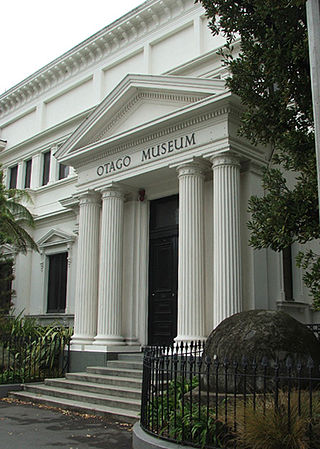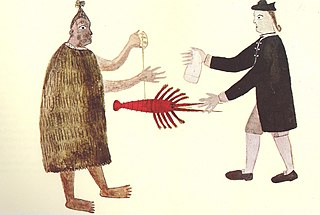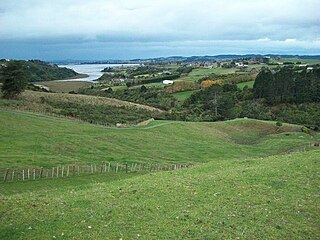Related Research Articles
The education system in New Zealand implements a three-tier model which includes primary and intermediate schools, followed by secondary schools and by tertiary education at universities and polytechnics. The academic year in New Zealand varies between institutions, but generally runs from early February until mid-December for primary schools, late January to late November or early December for secondary schools and polytechnics, and from late February until mid-November for universities.
A green economy is an economy that aims at reducing environmental risks and ecological scarcities, and that aims for sustainable development without degrading the environment. It is closely related with ecological economics, but has a more politically applied focus. The 2011 UNEP Green Economy Report argues "that to be green, an economy must not only be efficient, but also fair. Fairness implies recognizing global and country level equity dimensions, particularly in assuring a Just Transition to an economy that is low-carbon, resource efficient, and socially inclusive."
This is a timeline of environmental history of New Zealand. It includes notable events affecting the natural environment of New Zealand as a result of human activity.

The Ministry of Education is the public service department of New Zealand charged with overseeing the New Zealand education system.

The Resource Management Act (RMA) passed in 1991 in New Zealand is a significant, and at times, controversial Act of Parliament. The RMA promotes the sustainable management of natural and physical resources such as land, air and water. New Zealand's Ministry for the Environment describes the RMA as New Zealand's principal legislation for environmental management.
Te Manatū WakaMinistry of Transport is the public service department of New Zealand charged with advising the New Zealand Government on transport policy. The Ministry works closely with other government transport partners, including the New Zealand Transport Agency (NZTA) to advance their strategic objectives.

Environmental education (EE) refers to organized efforts to teach how natural environments function, and particularly, how human beings can manage behavior and ecosystems to live sustainably. It is a multi-disciplinary field integrating disciplines such as biology, chemistry, physics, ecology, earth science, atmospheric science, mathematics, and geography.
The Ministry for the Environment is the public service department of New Zealand charged with advising the New Zealand Government on policies and issues affecting the environment, in addition to the relevant environmental laws and standards. The Environment Act 1986 is the statute that establishes the Ministry.

The Royal Society Te Apārangi is a not-for-profit body in New Zealand providing funding and policy advice in the fields of sciences and the humanities. These fundings are provided on behalf of the New Zealand Ministry of Business, Innovation and Employment.
Playcentre is an early childhood education and parenting organisation which operates cooperative parent-led early childhood education centres throughout New Zealand. While the concept originated in New Zealand, it is now also established in Japan.

Tūhura Otago Museum is located near the city centre of Dunedin, New Zealand, adjacent to the University of Otago campus. The museum has one of the largest collections in New Zealand, and is one of the city's leading attractions. Natural science specimens and humanities artefacts from the Otago region and around the world form the basis for long-term gallery displays. An interactive science centre within the museum includes a large, immersive tropical rainforest butterfly house.

The development of state schooling in New Zealand has been shaped by social, economic and political interactions between Māori as tangata whenua, missionaries, settlers, voluntary organisations and the state of New Zealand which assumed a full legislative role in education in 1852. While the initiatives and systems were driven by colonial ambitions to protect and civilise the indigenous people through assimilation, and install a model of education based on European concepts of the purposes and delivery of learning, Māori actively engaged with the process to retain their traditional knowledge and language by participating in missions schools, contesting many aspects of Native schools and establishing Kura Kaupapa Māori. Arguably to create and reform an education system that aimed to reduce inequalities and enable social mobility, a series of acts of parliament has attempted to resolve differences between competing interests as the country faced social, cultural and economic challenges. In response to criticism of the education system and the role of the state in managing and delivering equitable learning, there were radical reforms in the late 1980s. These changes resulted in the establishment of self-managing schools and a decentralisation of the system, with the Department of Education being replaced by the Ministry of Education whose role has been to implement government reforms. While these systems are under review, they remain in place as of 2023.
The Cawthron Institute is New Zealand's largest independent science organisation, specialising in science that supports the environment and development within primary industries. Cawthron has its main facilities in Nelson. It works with regional councils, government departments, major industries, private companies, and other research organisations throughout New Zealand and around the world. Cawthron employs approximately 300 scientists, laboratory technicians, researchers and specialist staff from 26 countries. It has both chemistry and microbiology labs, and has a major focus on food related testing for food safety and export certification. Cawthron holds IANZ accreditation for a wide range of tests. Its scientists include experts in aquaculture, marine and freshwater resources, food safety and quality, algal technologies, biosecurity and analytical testing.

The environment of New Zealand is characterised by an endemic flora and fauna which has evolved in near isolation from the rest of the world. The main islands of New Zealand span two biomes, temperate and subtropical, complicated by large mountainous areas above the tree line. There are also numerous smaller islands which extend into the subantarctic. The prevailing weather systems bring significantly more rain to the west of the country. New Zealand's territorial waters cover a much larger area than its landmass and extend over the continental shelf and abyssal plateau in the South Pacific Ocean, Tasman Sea and Southern ocean.

Litter is a global issue and has a significant human impact on the environment. Litter is especially hazardous because it can enter ecosystems and harm a country's biodiversity. Litter is a prevalent environmental issue in New Zealand.
Sustainability in New Zealand is being increasingly recognised as being good practice and the government has made some moves toward this goal.

Electronic waste in New Zealand is an environmental issue being addressed by community and government initiatives.
Four Green Steps is an internet environmental organization based in Montreal, Quebec. The organization was founded in 2008 by Jaye and Bill Yarrow. The business has been active for three years, but the official launch was held in October 2011. The organization consists of four sections: School Program, Community, Marketplace and InfoZone. Four Green Steps contains information on various environmental topics such as green living, sustainable products, and corporate responsibility. The site also provides an environmental curriculum for various schools of different ages.... The organization celebrated 'Unsolicited Acts of Kindness Week' in August 2012, celebrating by donating used office equipment and pledging to plant a tree for anyone who does a good deed during Kindness Week.

Climate change education (CCE) is education that aims to address and develop effective responses to climate change. It helps learners understand the causes and consequences of climate change, prepares them to live with the impacts of climate change and empowers learners to take appropriate actions to adopt more sustainable lifestyles. Climate change and climate change education are global challenges that can be anchored in the curriculum in order to provide local learning and widen up mindset shifts on how climate change can be mitigated. In such as case CCE is more than climate change literacy but understanding ways of dealing with climate
The New Zealand Nationally Significant Collections and Databases (NSCDs) are government-funded biological and physical collections or databases that are considered important and significant to New Zealand.
References
- ↑ "Values / The New Zealand Curriculum / Curriculum documents / The New Zealand Curriculum Online - NZ Curriculum Online". nzcurriculum.tki.org.nz. Archived from the original on 2009-10-29.
- ↑ "Home". 29 November 2013.
- ↑ "Enviroschools : In Your Region". www.enviroschools.org.nz. Retrieved 2019-01-04.
- ↑ "Toimata Foundation". www.toimata.org.nz. Retrieved 2019-01-04.
- ↑ "Enviroschools : Overview". www.enviroschools.org.nz. Archived from the original on 2019-01-20. Retrieved 2019-01-04.
- ↑ "Enviroschools : Overview". www.enviroschools.org.nz. Retrieved 2019-01-04.